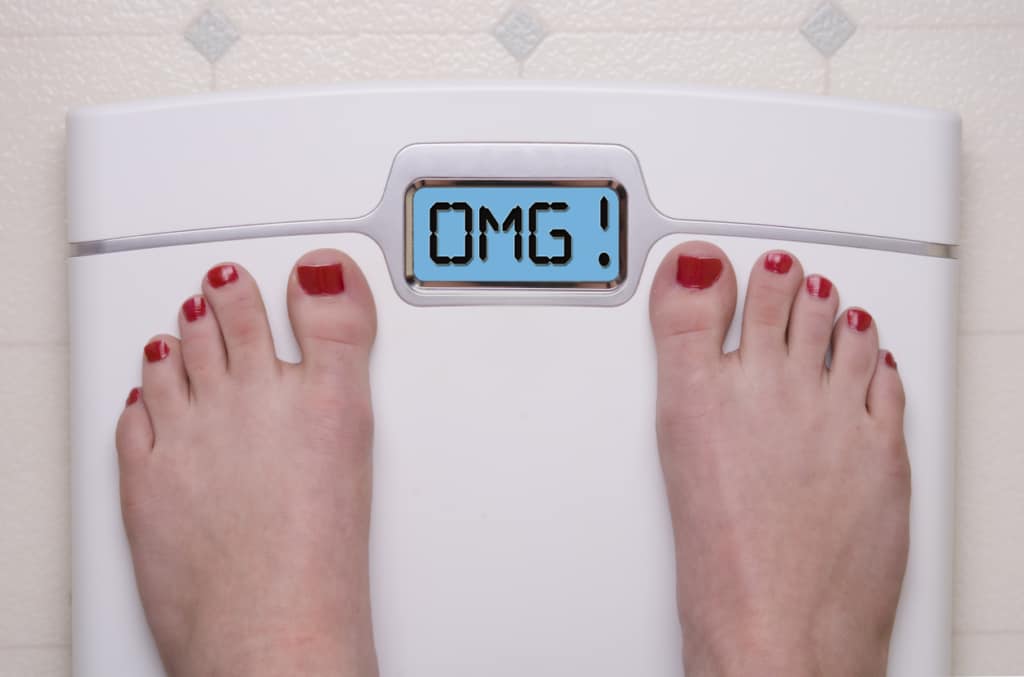
Let’s talk about weight gain in mid-life. One of the biggest complaints I hear from patients around the time they hit perimenopause, and certainly within a year after menopause, is that they have gained weight. Women tell me that despite no change in eating habits or exercise routines, their bodies have changed, seemingly out of the blue.
So, what is going on here? Everyone experiences age-related weight gain, but what happens to women in perimenopause is distinctly different. Starting from 2 years before a woman’s last menstrual period and extending to 2 years after that last period, there is a documented doubling of fat acquisition with a loss of muscle mass at the same time. That is a dramatic redistribution of weight!
Why does this happen? There are probably numerous factors that contribute. Falling hormones, increasing stress, and decreasing metabolic resilience all play a role. During this perimenopausal period, we see significant changes in cholesterol with LDL and triglycerides (bad cholesterol) going up and HDL (good cholesterol) going down. There is often an increase in insulin resistance – meaning the body’s ability to handle sugar in the diet gets worse. We are more likely to turn sugar into fat and more susceptible to glucose spikes after meals which is a driver of inflammation. Last, but not least, perimenopause is a stressful time. Stress is a driver of cortisol which in turn lowers sex hormones, increases insulin resistance, and itself contributes to weight gain.
One theory I have is that the lack of estrogen itself might be a driver of fat acquisition. A little-known fact is that fat cells make estrogen. I have always wondered if the precipitous drop in ovarian estrogen with menopause pushes the body to find other sources of this important hormone. Could the increase in fat actually be our body’s way to naturally increase estrogen?
There are many questions we don’t have the answers to, but one thing I do know is: we can’t simply eat and exercise the same way we used to and expect our bodies to stay the same. Our bodies are fundamentally changing as we go through the menopausal transition.
What is my approach to helping women with mid-life weight gain? I look at the same pillars of health that I always do: food, exercise, sleep, and stress management. I encourage women to embrace the idea that as our bodies change, we need to bolster those 4 pillars of health:
- FOOD –
- low glycemic diet avoiding added sugars, alcohol, refined carbohydrates (bread, pasta), highly processed foods
- healthy carbohydrates (vegetables, non-tropical fruits, whole grains)
- healthy fats (olive oil, wild salmon, nuts, avocado)
- adequate protein (organic animal products, whole beans, quinoa)
- MOVEMENT –
- strength training to increase muscle mass
- weight-bearing exercise to improve bone density
- REDUCE STRESS-
- meditation, breathwork, calming practices
- over-exercising and extreme fasting or low-calorie diets are common weight-loss strategies that can make weight loss more difficult
- SLEEP –
- make this a priority
The last important strategy is hormone optimization or hormone replacement therapy. Studies are now beginning to show that if started around the time of menopause, hormones improve body composition, blood cholesterol levels, sleep, quality of life, mitigate many disease processes such as osteoporosis that impact mortality. Most women are excellent candidates for menopausal hormone therapy. For those who are not good candidates, we rely on lifestyle strategies and herbal medicine to support them.
Stay tuned for my next blog where I will dive into insulin resistance and the menopause connection…
Dr. Bronwyn Fitz is double board-certified in Obstetrics and Gynecology and Integrative Medicine. If you want to learn more about her practice, click on Get Started to book a free 15-minute discovery call.
